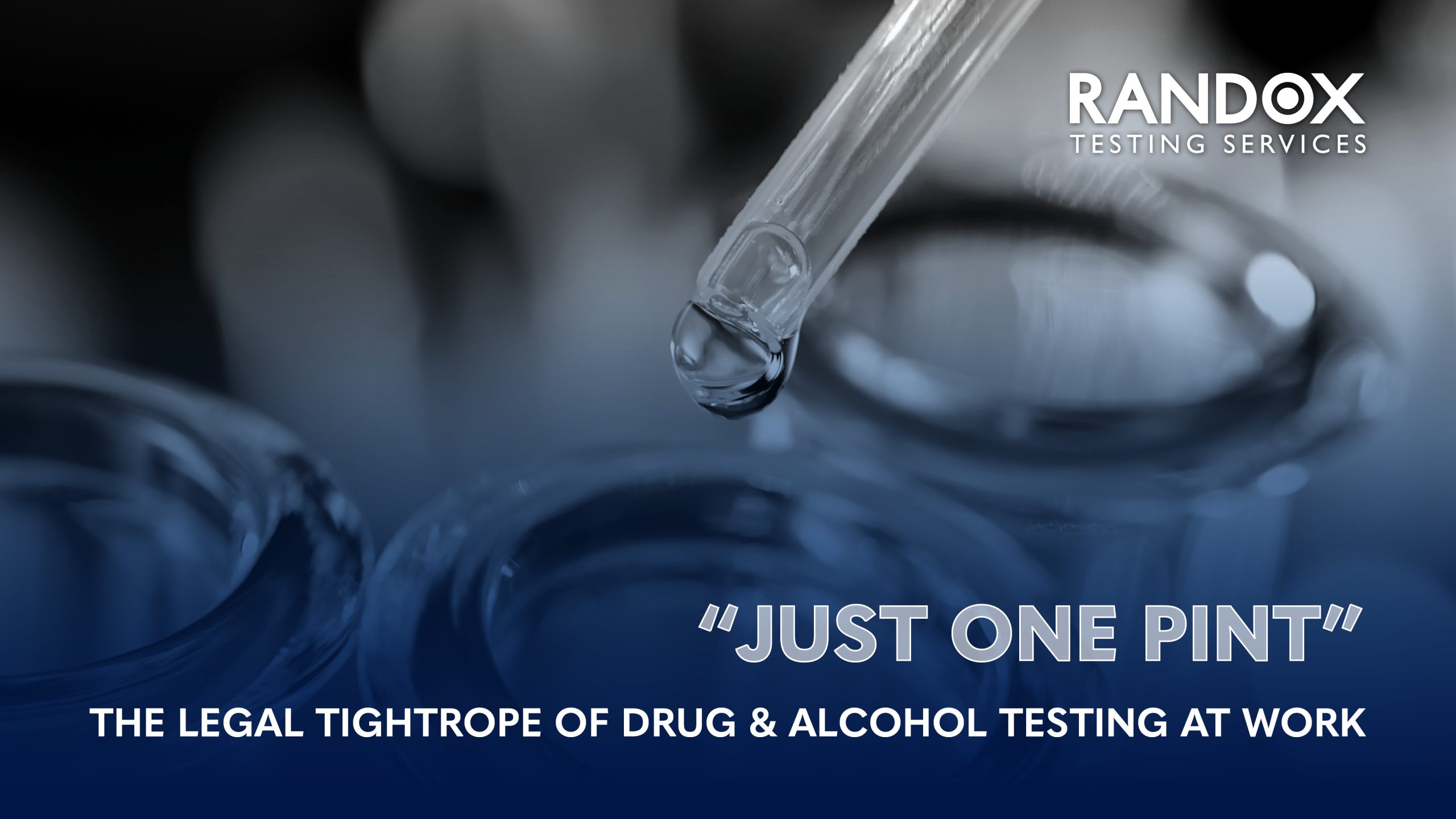“Just One Pint”: The Legal Tightrope of Drug & Alcohol Testing at Work

One pint at lunch. That’s all it took.
A warehouse manager stumbles slightly during a safety inspection. He’s breathalysed. He fails. Suddenly, the company’s reputation, legal standing, and employee trust are all on the line.
This isn’t a far-fetched HR nightmare. It’s a very real workplace scenario and it raises the question every employer should be asking:
What are my legal duties when it comes to drug and alcohol testing at work?
Let’s break it down legally, ethically, and practically.
The Legal Lowdown (UK Focused)
There’s no blanket law that says “you must test employees for drugs or alcohol”. But in many sectors, it’s mandatory. Aviation, maritime, nuclear and rail industries all have strict regulations that require drug and alcohol testing as part of their safety regime.
In other industries the cornerstone of your legal duty is the Health and Safety at Work Act 1974 which requires you to keep employees safe. Combine that with data protection laws, anti-discrimination rules, and industry specific legislation, and suddenly testing becomes more than just a policy, it’s a legal balancing act.
Here’s the legal toolkit you’re working with:
- – Health and Safety at Work Act 1974 – Duty to ensure employee safety. Alcohol and drug misuse? Big risk.[1]
- – Data Protection Act 2018 (UK GDPR) – Drug/alcohol test results = sensitive personal data. Treat with extreme care.[2]
- – Transport and Works Act 1992 – Makes it a criminal offence for workers to be impaired at work (rail, aviation).[3]
Bottom line? Testing needs a strong justification, or you’re skating on legal thin ice.
So when Can You Drug or Alcohol Test at Work?
✅ Before hiring: Typically seen in safety critical roles but is all down to company policy. Any employer can introduce it as long as it is clearly communicated and legally compliant.
✅ After an incident:
Accident or near-miss? Testing is legally sound if it’s part of your policy.
✅ If there’s clear suspicion:
Obvious signs like slurred speech or erratic behaviour? You can act but document everything.
⚠️ Random testing: Typically seen in high-risk industries (e.g. transport, energy, construction), any company can use this as long as it is in their policy.
❌ Blanket testing:
Testing everyone for no reason? Over the line unless serious safety risks are involved.
❌ No policy = no power:
If you haven’t clearly set out the rules in writing, you can’t enforce testing. Simple as that.
❌ Can you force a test?
No, but if your policy says refusal leads to disciplinary action and you’ve followed the rules then you can take fair steps.
Legal Doesn’t Mean Lawless: Ethics Still Matter
Yes, you can test. But should you?
Here’s how to get it right:
– Be Transparent: Your drug/alcohol policy should be crystal clear and part of contracts or the employee handbook.
– Be Consistent: One rule for all. Unequal treatment opens the door to claims of discrimination.
– Be Supportive: Treat substance misuse like a health issue, not just a disciplinary one. Offer help, not just consequences.
Don’t Forget Data Protection
Test results = special category data under the UK General Data Protection Regulation.
-
You need a lawful basis for processing.
-
You must inform employees what you’re doing with their data.
-
Store it securely. Access should be strictly limited.
-
Don’t keep it forever — only as long as needed.
Mess this up, and you’re not just facing an HR issue. You could be looking at a serious data protection breach.
A Better Policy Builds a Safer Culture
Too many businesses think testing is about catching people out.
It’s not.
When done right, testing is about trust, clear boundaries, and shared responsibility. Increasingly, companies view it as part of their wellbeing support, not just for employees, but for their families too.
When people know the policy is fair, transparent, and designed to protect, not punish, they’re far more likely to engage with it and respect it.
Final Takeaway: Legal Compliance, Human Approach
Drug and alcohol testing isn’t about micromanaging people’s lives it’s about preventing harm before it happens.
As an employer, your duties are legal, yes but they’re also ethical. Lead with clarity, follow the law, respect privacy, offer help and above all:
Don’t just enforce rules. Build a culture that doesn’t need them to begin with.
Need Help Getting Started?
Contact us today to discuss your workplace drug testing requirements:
Email: testingservices@randox.com
Phone: +44 (0) 28 9445 1011
LinkedIn: Randox Testing Services
Learn more about our services at: Randox Drug & Alcohol Testing Services
References
1.HSE. “Health and Safety at Work Act 1974.” Hse.gov.uk, Health and Safety Executive, 2024, www.hse.gov.uk/legislation/hswa.htm.
2.Data Protection Act. “Data Protection Act 2018.” Legislation.gov.uk, 2018, www.legislation.gov.uk/ukpga/2018/12/contents.
3.GOV.UK. “Transport and Works Act 1992.” Legislation.gov.uk, 2021, www.legislation.gov.uk/ukpga/1992/42/contents.